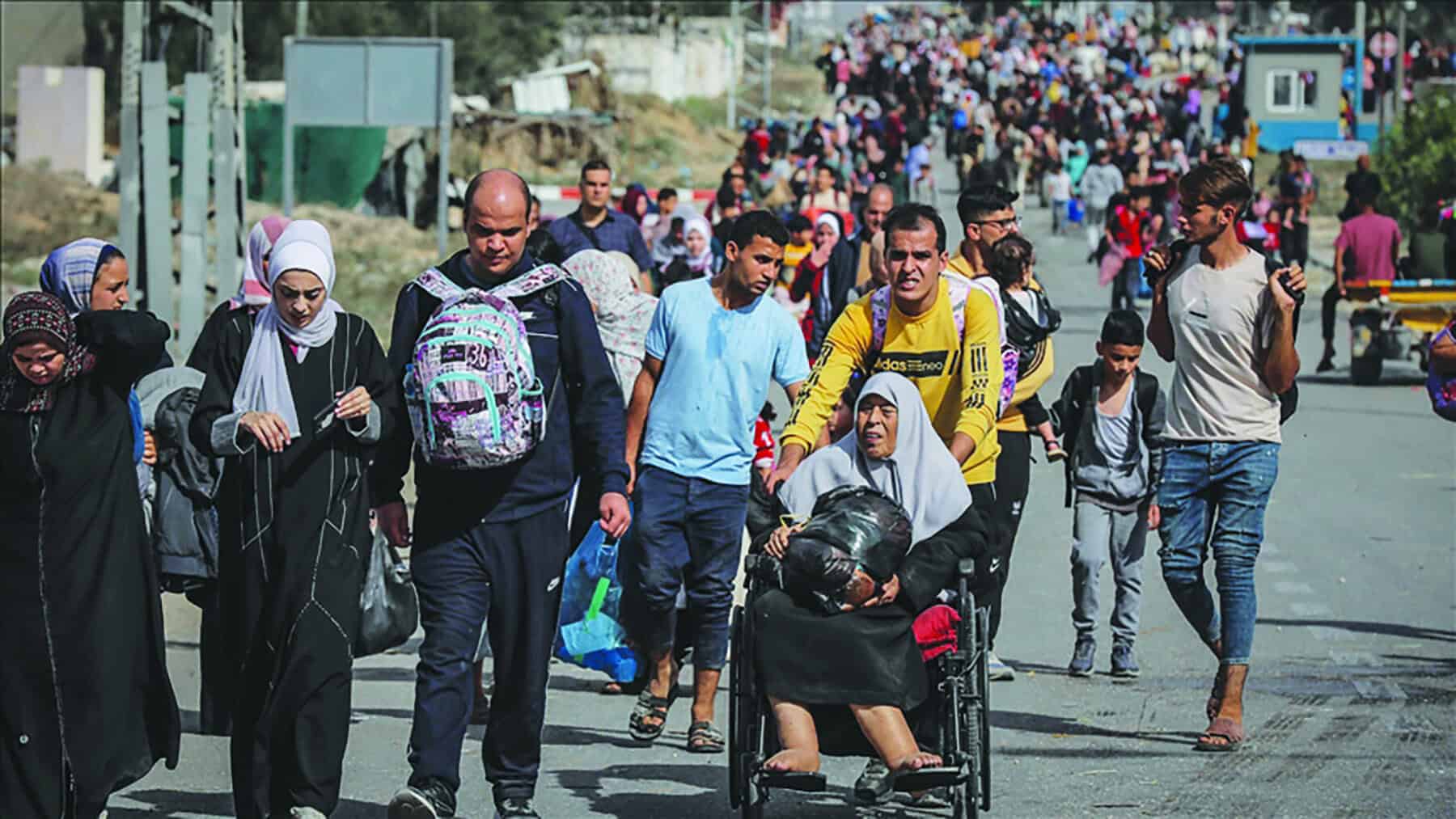Arab Leaders Gather at Summit in Saudi Arabia to Hash out Plan to Avoid Palestinian Displacement
The leaders of seven Arab countries have held talks in Saudi Arabia in an attempt to hash out a plan for the future of Gaza.
The gathering on Sun Feb 21st in Riyadh was meant to respond to a plan raised by the U.S. President Donald Trump for the U.S. to “take over” Gaza, permanently forcibly displace its residents, and turn this Palestinian Populated Region into the “Riviera” of the Middle East.
Arab leaders have roundly rejected Trump’s proposal, saying it throws out decades of work toward Palestinian self-determination, treads on the rights of residents of Gaza, and will perpetuate a regional cycle of violence.
They hope to present an alternative plan with unified support at an Arab League meeting on Mar 4th in Cairo, Egypt.
Saudi Crown Prince Mohammed bin Salman had called the Riyadh meeting, which was attended by Jordan’s King Abdullah II, Egyptian President Abdel Fattah el-Sisi, Qatari Emir Sheikh Tamim bin Hamad Al Thani, UAE President Sheikh Mohammed bin Zayed Al Nahyan, Kuwaiti Emir Sheikh Meshal al-Ahmad Al Sabah, and Bahrain Crown Prince Salman bin Hamad Al Khalifa.
No official account of the meeting had been released on Sun, Feb 21 by any of the countries involved, and it was not immediately clear if any details of a plan had been agreed to.
Seeking a ‘United Front’
Reporting from Riyadh, Al Jazeera’s Hashem Ahelbarra said the meeting on Sunday began with the presentation of a reconstruction plan developed by Egypt and envisioned as part of a three-phase ceasefire deal between Hamas and Israel.
Only the first phase of that agreement, which has seen a pause in fighting and the exchange of captives, has so far been agreed to. A second phase would see a complete end to fighting, while a third phase aims to address rebuilding the devastated Palestinian territory.
Ahelbarra said the Arab leaders are hoping to build off the Egyptian plan before the Cairo meeting, so they can “put on a united front with a new proposal that can be easily sold to the Americans and the international audience.”
“We’re talking about extremely difficult things that could shape the entire region for many years to come,” he said.
Still left to be decided was the question of how reconstruction would be funded in an Arab-led plan, he added. Earlier this week, the World Bank, United Nations, and European Union said it would cost over $53 billion to rebuild Gaza, including $20 billion in the first three years.
Any reconstruction plan also overlaps with the wider questions of political and security control of Gaza when the war ends, Ahelbarra said.
Speaking to Al Jazeera, former Egyptian Assistant Foreign Minister Hussein Haridy said the gathering comes at “a crucial moment for the Palestinians and for the Arab nations.”
“Allow me to quote William Shakespeare: it’s ‘to be or not to be’ for the Arab world today,” he said.
“Because if the Trump proposal comes to carry the day, then that would be the end of the struggle—the Arab struggle and the Palestinian struggle—of seven decades.”
Israel and many of its Western allies have rejected the prospect of Hamas remaining in control of the enclave following the war. Israel has also rejected the Palestinian Authority taking control of Gaza, despite more support from the international community for that possibility.
Observers say the urgency of reaching an agreement is particularly acute for Egypt and Jordan, who Trump has pressured to accept displaced Palestinians en masse.
The U.S. president has threatened to withhold hundreds of millions of dollars in aid if they do not comply. Both countries have rejected the scheme.
Alternative to Trump
For its part, Cairo has not publicly released its preliminary reconstruction plan.
However, former Egyptian diplomat Mohamed Hegazy had previously outlined a plan in what he described as “three technical phases over a period of three to five years.”
A first six-month phase would focus on “early recovery” and the removal of debris, he said.
The second phase would see an international conference set out a detailed plan for restoring infrastructure and rebuilding Gaza.
A final phase would see the provision of housing and services and the establishment of a “political track to implement the two-state solution,” he said, referring to eventual Palestinian statehood.
Speaking to Al Jazeera, Abdulaziz al-Ghashian, the director of research at Riyadh-based Observer Research Foundation Middle East, said all the countries involved in the meeting on Sunday are determining how to respond to an “administration in the United States that is almost proud of trying to support [Israeli Prime Minister Benjamin] Netanyahu blindly.”
“And we have a prime minister in Israel that is really trying his luck and maximizing his effort,” he said.
Al-Ghashian said that any Arab-led plan “cannot discern between economy, politics, and security,” including a path to Palestinian self-determination.
“The reality is, all these things are very interconnected,” he said. “And we need to start thinking about this in a more interconnected, synergetic way.”
Al Jazeera Staff

